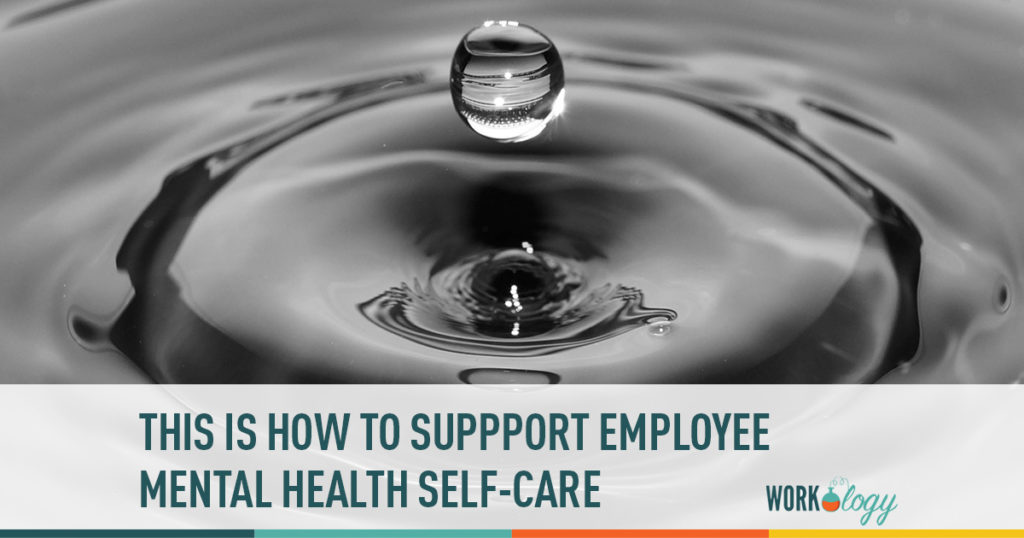When computer engineer Madalyn Parker told her team she would be taking a mental health day, her boss at the startup Olark responded in an incredibly supportive way. Instead of just thanking her for letting everyone know, he thanked her for being upfront about needing a mental health day. Olark CEO Ben Congleton wrote,
“I just wanted to personally thank you for sending emails like this. Every time you do, I use it as a reminder of the importance of using sick days for mental health — I can’t believe this is not standard practice at all organizations. You are an example to us all, and help cut through the stigma so we can all bring our whole selves to work.”
What’s important about Congleton’s response is how firm he is about wanting to see notes like Parker’s normalized, as well as speaking openly about the need for mental health self care. It’s one thing to offer mental health benefits or to talk about the need to avoid burnout and reduce stress at work, but it’s another to support your employees and team leaders when the time comes. Things like employee recognition and work-life balance are favourites of executives when talking up their organizations, but are all too easily pushed aside in favour of the “bottom line.” Congelton’s note makes clear that mental health self care, though, is essential to that bottom line.
This Is How You Can Support Your Employees Mental Health Self Care
Workplace stress and anxiety is endemic and it has a huge impact on the productivity and health of workers and the organization as a whole. According to a 2014 study, 56% of Americans say that stress and anxiety regularly interferes with their work performance; 51% say stress has a debilitating effect on their workplace relationships; and 50% say it reduces the quality of their work.
But that’s just regular, everyday stress levels – crunch time, personal crises and political upheavals can increase that stress and anxiety exponentially. Although election stress has slowly begun to die down in the U.S., tensions were high for over a year leading up to the election and in its immediate aftermath. In February 57% percent of Americans said that the political climate was a significant source of source; many respondents reported broken friendships and decreased productivity.
Stress and anxiety take a huge toll on your mind, body and those around you. People with chronic stress – those with anxiety disorders or high stress occupations or living situations – often suffer health complications because of it. Like your doctor has probably told you, stress is a killer.
Of course a certain amount of stress is good for you. It’s what makes things like sports and suspenseful movies so exciting. It’s part of the thrill you get when meeting a new challenge, completing a project, or learning a difficult skill. But good stress is paired with rewards – and it ends. There’s no thrill in making it through the daily grind under a bullying boss or constant crunch time conditions. There’s no joy or value in a company culture that valorizes overworking to the point of diminishing returns. (And those returns are diminishing – the human brain and body can only keep up high levels of attention and output for so long.)
It’s refreshing to see a business leader understand that it’s not just about supporting a grand stress reduction action plan, but that supporting your employees and improving your company culture means supporting them every day in making their work lives better.







